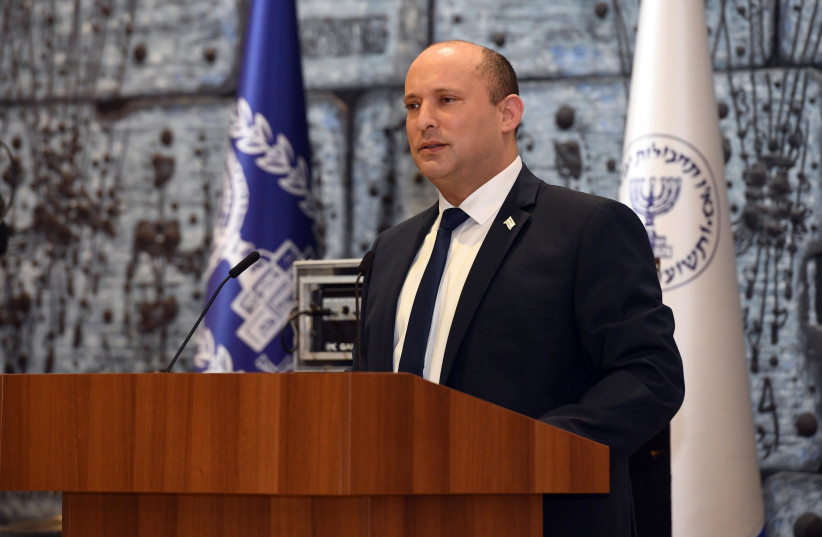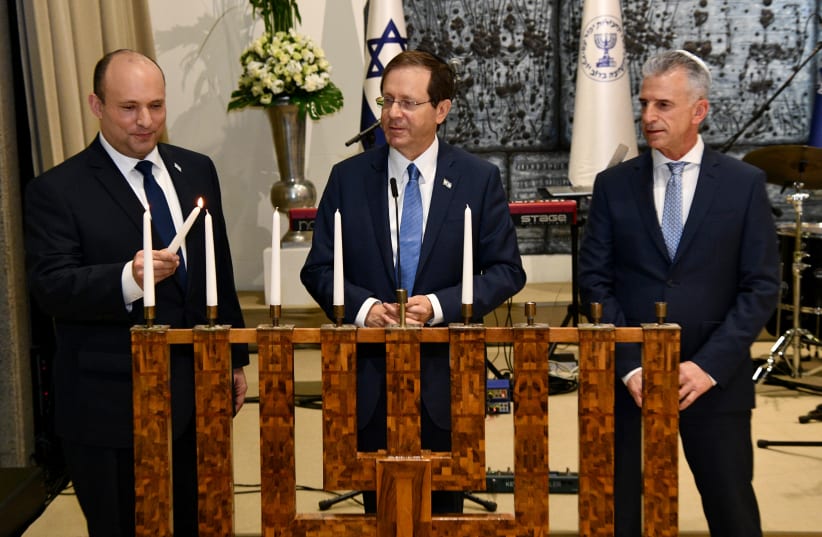The Mossad will thwart any attempts by Tehran to possess nuclear weapons, the chief of Israel's intelligence agency David Barnea pledged on Thursday night as talks Vienna to revive the 2015 Iranian nuclear deal appeared to falter.
"Iran will not have nuclear weapons – not in the coming years, not ever. This is my personal commitment: This is the Mossad’s commitment," Barnea said at an award ceremony for 12 Mossad agents.
“Our eyes are open, we are alert, and together with our colleagues in the defense establishment, we will do whatever it takes to keep that threat away from the State of Israel and to thwart it in every way,” Barnea said.
Earlier on Thursday, the Jewish Chronicle reported that the Mossad was responsible for destroying the centrifuge hall at the Iranian Natanz nuclear facility in April and did so by secretly recruiting a team of Iranian nuclear scientists.
"Iran strives for regional hegemony, operates the same terrorists that we're tackling every day worldwide, and continuously threatens the stability of the Middle East," Barnea explained.


The 2015 deal, known as the Joint Comprehensive Plan of Action (JCPOA) restricted the purity to which Iran can enrich uranium to 3.67%, far below the roughly 90% that is weapons-grade, or the 20% Iran reached before the deal. Iran is now enriching to various levels, the highest being around 60%.
In November, the Institute for Science and International Security reported that Iran has enough enriched uranium hexafluoride enriched to nearly 20%, and 60% enriched uranium to produce enough weapons-grade uranium for a nuclear weapon in as little as three weeks. In just two months more, Iran could produce enough weapons-grade uranium to produce a second weapon.
The International Atomic Energy Agency said on Wednesday that Iran has started producing enriched uranium with advanced centrifuges at its Fordow plant.
"It's clear that there is no need for 60% purified uranium for civilian purposes, there is no need for three sites with thousands of centrifuges active unless there is the intention to develop nuclear weapons," Barnea spoke.
He spoke after the six world powers and Tehran had held four days of indirect talks in Vienna to revive the 2015 Iran deal. It was signed between Iran and the United States, Russia, China, France, Germany and the United Kingdom.
The Trump administration exited the deal in 2018, but US President Joe Biden wants to return to the deal. The EU has brokered indirect talks between the two parties, with little success to date.
Israel has opposed the deal with Prime Minister Naftali Bennett, asking US Secretary of State Antony Blinken to put an end to the talks.
Barnea also sharply criticized the deal as "terrible" and "barely tolerable."
Among the issues stymying the talks is Iran's insistence on immediate sanction removal.
Tehran's chief nuclear negotiator Ali Bagheri Kani said Iran had delivered two drafts to the Europeans, one on sanctions removal and the other on nuclear limitations.
"We want all sanctions to be lifted at once," Bagheri told reporters in Vienna, outlining a position unlikely to be warmly welcomed by the West, which has sought some kind of sequence under which Iran would return to the pact's nuclear limits.
Reuters contributed to this report.
